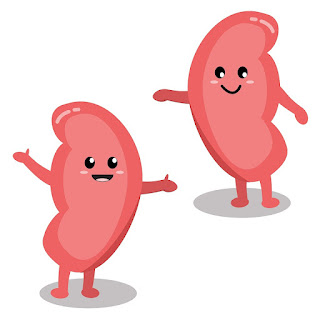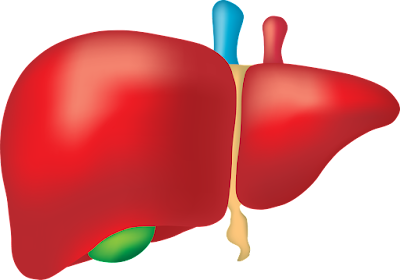Unlocking the Power of Hemoglobin: A Comprehensive Guide
to Improving Hemoglobin Levels
Introduction: Hemoglobin is an essential protein
found in red blood cells that transports oxygen from the lungs to numerous
tissues and organs throughout the body. It is critical to maintain normal
hemoglobin levels for overall health and well-being. However, many people
suffer from low hemoglobin levels, which cause symptoms such as weariness,
weakness, and shortness of breath. This comprehensive blog will give you useful insights and practical techniques to unlock the power of hemoglobin and
improve your general health if you want to improve your hemoglobin levels.
Understanding Hemoglobin: Before diving into
strategies to improve hemoglobin levels, it's essential to understand the role
of hemoglobin in the body. Hemoglobin is a complex protein composed of heme, a
molecule that contains iron, and globin, a protein chain. Its primary function
is to bind to oxygen molecules in the lungs and transport them to tissues and
organs. Hemoglobin also helps in carrying carbon dioxide, a waste product, from
the cells back to the lungs, where it can be exhaled.
Causes and Symptoms of Low Hemoglobin: Low hemoglobin
levels, also known as anemia, can occur due to various factors. Some common
causes include nutritional deficiencies, such as iron, vitamin B12, or folate
deficiency, chronic diseases, certain medications, and genetic disorders.
Recognizing the symptoms of low hemoglobin is crucial for early intervention.
Common symptoms include fatigue, weakness, pale skin, shortness of breath,
dizziness, and irregular heartbeats.
Diagnosis and Medical Intervention: If you suspect
low hemoglobin levels, it's important to consult a healthcare professional for
an accurate diagnosis. A simple blood test, known as a complete blood count
(CBC), can assess hemoglobin levels and identify the underlying cause of
anemia. Based on the diagnosis, your healthcare provider may recommend specific
medical interventions, such as iron supplements, vitamin B12 injections, or
medications to treat the underlying condition causing low hemoglobin.
Diet and Nutrition for Improving Hemoglobin Levels: Dietary
modifications can significantly impact hemoglobin levels. This section will
explore various nutrients and dietary strategies that can help enhance
hemoglobin production.
Iron-Rich Foods: Iron is a crucial component of
hemoglobin, so consuming iron-rich foods is essential to improve hemoglobin
levels. Include foods such as lean meats, seafood, poultry, legumes, dark leafy
greens, tofu, and fortified cereals in your diet. Additionally, cooking in
cast-iron cookware can increase iron content in your meals.
Vitamin C for Iron Absorption: Pairing iron-rich
foods with sources of vitamin C can enhance iron absorption in the body. Citrus
fruits, berries, tomatoes, bell peppers, and leafy greens are excellent sources
of vitamin C that can be included in your meals.
Folate and Vitamin B12: Folate and vitamin B12 are
essential for red blood cell production. Incorporate foods like spinach,
broccoli, asparagus, fortified grains, lean meats, fish, and dairy products to
ensure an adequate intake of these nutrients.
Other Essential Nutrients: In addition to iron,
folate, and vitamin B12, certain other nutrients play a role in hemoglobin
production. These include copper, vitamin A, vitamin E, and riboflavin. Nuts,
seeds, whole grains, eggs, dairy products, and colorful fruits and vegetables
can provide these nutrients.
Dietary Considerations: While increasing the intake
of iron-rich foods and nutrients, it's important to be mindful of dietary
considerations. Certain foods and substances can hinder iron absorption, such
as coffee, tea, calcium-rich foods, and high-fiber foods. Separating the
consumption of these items from iron-rich meals can help optimize iron
absorption.
Lifestyle Changes and Habits: In addition to dietary
modifications, certain lifestyle changes and habits can contribute to improving
hemoglobin levels.
Regular Exercise: Engaging in regular physical
activity can stimulate the production of red blood cells and promote better
blood circulation. Incorporate exercises such as walking, jogging, cycling,
swimming, or any other activities that you enjoy into your routine.
Stress Management: Chronic stress can affect the
body's ability to produce and maintain healthy hemoglobin levels. Adopt stress
management techniques like meditation, deep breathing exercises, yoga, or
engaging in hobbies to reduce stress levels and promote overall well-being.
Healthy Sleep Patterns: Quality sleep plays a crucial
role in overall health, including hemoglobin production. Aim for 7-9 hours of
uninterrupted sleep each night to support optimal hemoglobin levels.
Herbal Remedies and Supplements: While a balanced
diet should be the primary source of nutrients, certain herbal remedies and
supplements can complement efforts to improve hemoglobin levels. However, it's
important to consult with a healthcare professional before starting any new
supplements. Some commonly recommended supplements include iron supplements,
vitamin B12, folic acid, and herbal remedies like nettle leaf, dandelion root,
and yellow dock.
Potential Risks and Precautions: Although natural
interventions can be beneficial, it's important to be aware of potential risks
and precautions. Excessive intake of certain supplements or herbal remedies can
have adverse effects. For example, iron supplements should only be taken when
prescribed or recommended by a healthcare professional, as excessive iron
levels can be harmful. It's crucial to follow dosage instructions and seek
professional guidance.
When to Seek Medical Advice: While lifestyle changes
and dietary modifications can have a positive impact on hemoglobin levels,
certain cases require medical intervention. If you have persistent symptoms of
anemia or if your hemoglobin levels do not improve despite dietary and lifestyle
changes, it's important to consult a healthcare professional. They can assess
your condition, conduct further tests if necessary, and recommend appropriate
medical treatments.
Conclusion: Improving hemoglobin levels is a
multifaceted strategy that includes dietary adjustments, lifestyle changes,
and, in some circumstances, medical intervention. Individuals can boost
hemoglobin synthesis and overall well-being by eating iron-rich meals,
regulating nutrition intake, reducing stress, and adopting healthy practices.
Always get expert advice and contact with a healthcare provider before making
large changes to your diet or beginning new supplements. You can unlock the
power of hemoglobin and improve your overall health and vitality with the
correct tactics and a comprehensive approach.
Visit Enlightopia
Blog for more Learning Content absolutely FREE...!!
Tags:
#Enlightopia Health, @Enlightopia Health, #Enlightopia Hemoglobin, @Enlightopia
Hemoglobin, #Enlightopia Blood, @Enlightopia Blood
Fundamental
Analysis in Stock Market
Technical
Analysis in Stock Market
Diversification
in Investment Portfolio
Risks
and Volatility in Stock Market
Moving
Average in Technical Analysis
Moving
Average Convergence Divergence (MACD)
Bollinger
Bands in Technical Analysis
Stochastic
Oscillator in Technical Analysis
Fibonacci
Retracement in Technical Analysis
Improve
Digestion and Metabolism











